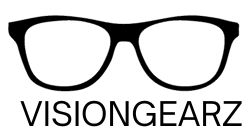Don't miss our holiday offer - up to 50% OFF!
A Comprehensive Guide to Choosing Blue Light Blocking Glasses
Blue light blocking glasses have become essential for many. These specialized glasses promise to reduce eye strain, improve sleep, and protect your eyes from the harmful effects of prolonged screen exposure. But with so many options available, how do you choose the right pair? In this guide, we’ll explore key factors to consider, the best blue light blocking percentages, lens colors, and potential side effects to help you make an informed decision.
How to Choose the Right Blue Light Blocking Glasses
Choosing the right blue light blocking glasses involves considering several factors:
1. Assess Your Needs
- Screen Time: Evaluate how much time you spend on digital devices daily. More screen time typically requires higher blue light blocking percentages.
- Usage Time: Determine if you use screens more during the day or night. Glasses with higher blocking percentages are beneficial for evening use to help improve sleep quality.
- Activities: Consider your primary activities. Gamers, office workers, and night-time readers may have different requirements.
2. Check the Blue Light Blocking Percentage
- Understanding Percentages: The blue light blocking percentage indicates how much blue light the lenses can filter out. Higher percentages offer more protection but can also affect color perception.
- Good Percentage Range: For general use, glasses that block 30-50% of blue light are effective. For night-time use or for those experiencing significant eye strain, glasses blocking 60% or more may be beneficial.
3. Lens Color
- Clear Lenses: Typically block 10-40% of blue light and are suitable for daytime use. They maintain natural color perception.
- Yellow/Amber Lenses: Block 50-70% of blue light and are ideal for reducing eye strain and improving contrast.
- Orange/Red Lenses: Block up to 98% of blue light and are best for evening use to minimize sleep disruption.
4. Lens Quality and Coatings
- Anti-Reflective Coating: Reduces glare from screens and overhead lighting.
- UV Protection: Ensures your eyes are protected from harmful UV rays as well.
- Scratch Resistance: Enhances durability and longevity of the lenses.
5. Frame Comfort and Style
- Fit and Comfort: Choose frames that fit well and are comfortable for extended wear. Consider lightweight materials if you’ll be wearing them for long periods.
- Style: With various styles available, you can find a pair that suits your personal taste without compromising on functionality.
What is a Good Percentage of Blue Light Blocking Glasses?
The effectiveness of blue light blocking glasses largely depends on the percentage of blue light they block. Here’s a guide to help you decide:
- For General Use: Glasses blocking 30-50% of blue light are sufficient for most people. They reduce eye strain without significantly altering color perception.
- For Heavy Screen Use: If you spend over 6 hours a day on screens, consider glasses that block 50-70% of blue light.
- For Evening Use: Glasses that block 70-98% of blue light are ideal for use in the evening. They help reduce the impact on your sleep by preventing blue light from disrupting your circadian rhythm.
Are Some Blue Light Blocking Glasses Better Than Others?
Not all blue light blocking glasses are created equal. Factors that contribute to the effectiveness and quality of blue light blocking glasses include:
- Lens Technology: Higher quality lenses with advanced blue light filtering technology tend to be more effective.
- Certifications and Testing: Look for glasses that have been independently tested and certified to block blue light effectively.
- Brand Reputation: Established brands like Gunnar Optiks, Felix Gray, and Pixel Eyewear are known for their quality and effectiveness in blue light blocking technology.
- Additional Features: Some glasses come with additional features like anti-glare coatings, UV protection, and scratch resistance, enhancing their overall functionality and durability.
What Color Lens is Best for Blocking Blue Light?
The color of the lens plays a crucial role in how much blue light is blocked and how the glasses affect your vision:
- Clear Lenses: Suitable for daytime use, blocking 10-40% of blue light. They maintain natural colors, making them ideal for office work and casual use.
- Yellow/Amber Lenses: Block 50-70% of blue light and are great for reducing eye strain and enhancing contrast. They are perfect for gamers and people working in high-screen environments.
- Orange/Red Lenses: These lenses block the most blue light, up to 98%. They are best for use in the evening or before bed to prevent blue light from affecting your sleep.
What are Possible Side Effects of Blue Light Blocking Glasses?
While blue light blocking glasses are generally beneficial, there are a few potential side effects to be aware of:
- Color Distortion: Higher blue light blocking percentages, especially with orange or red lenses, can alter color perception. This might be an issue for activities requiring accurate color recognition.
- Visual Adjustment: Some people may experience an adjustment period where their eyes adapt to the new lenses.
- Dependency: Relying heavily on blue light blocking glasses might make your eyes more sensitive to blue light over time.
Making the Right Choice
Choosing the right blue light blocking glasses involves understanding your needs, knowing the right blue light blocking percentage, selecting the appropriate lens color, and considering additional features for enhanced comfort and durability. By taking these factors into account, you can find a pair that not only protects your eyes but also fits your lifestyle perfectly.
Brands like Gunnar Optiks, Felix Gray, and Pixel Eyewear offer high-quality options tailored to different needs, ensuring you can find the ideal pair. Protect your eyes, reduce strain, and enjoy your screen time more comfortably with the right blue light blocking glasses.
